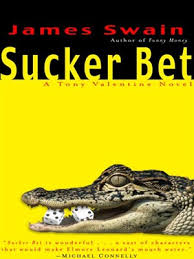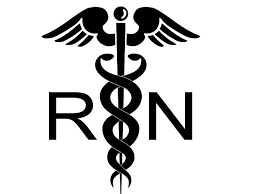“I could be bounded in a nutshell, and count myself a king of infinite
space, were it not that I have bad dreams.” – Hamlet, by Shakespeare
In a nutshell: Don’t mess with me. I’m your
worst nightmare.
That’s a funny phrase, “in a
nutshell” – it’s like “long story short” only more picturesque. What happened was in a picturesque place,
could be considered a long story told short, and it definitely involved nuts.
It started the usual way: I was
down in lovely Robbinsville, enjoying the camaraderie of Cheerwine and a burger
at The Kickstand. I was chewing
thoughtfully, trying to figure out where to make some extra cash, when two
bikers sauntered in, gray ponytails down to their patch rockers, faces burnt
from flaunting North Carolina’s helmet law. The filled the doorway, paused a
moment to scan the room, found an empty booth behind me and thudded into it,
vinyl cushions whoofing under their
weight. The booths were joined and the
guy behind me, flopping down, bumped mine forward dumping Cheerwine all over my
lunch. Crushed ice speckled my fries, now
stained red. I swore bitterly, surveying
the ruin. The bench jolted again as he
heaved himself out to investigate. “Oh
hell, brother, I’m sorry”, he growled, seeing my leathers. “Forget it”, I said, wadding up my napkin and
throwing it on the soggy plate with disgust.
I scooted sideways and made to get up but he put a hairy-knuckled hand
on my shoulder; “I feel kinda bad”, he said, “Can I make it up to ya?” That’s biker code for “You wanna make some money breaking the law?” He squeezed my
shoulder a couple times like we were friends, making the leather creak. I
looked up into his sly, smirking eyes, realized where this was going and said
to myself, “Why not?”
Bikers like to do bad things, because
they think people expect them to. They
like to do those bad things in groups, because individually they’re fat, hairy
cowards. Two’s company and they wanted
me to make it a crowd, knock off the Kickstand’s register and escape down the
11 mile, 318-curve Tail of the Dragon,
where a bike can go twice as fast as a police car and the Tennessee border
beckons at the other end. Either they
planned to lose me, or wreck me on the Tail. Their pea-brains made three
critical miscalculations, however. One, they
assumed I was a brother biker, probably because of my ponytail and leathers. Two, they assumed I wasn’t local because no
one lives in Robbinsville – it’s a
tourist town for leaf-peepers and bikers.
Three, they assumed I was lonely, bored, broke, and stupid.
I heaved to my feet with a glint in
my eye. “What’s the plan”, I
muttered. “Right here”, he
whispered. “We’ll hit the register then
hit the road to Tennessee”. “Down the Tail?”
I feigned nervousness. “Heh,
heh. Sure - why not?, he grinned; “Don’t be scared - ain’t no one can catch us
on the Dragon!” I shrugged. With no further ado he hit the register, the
cashier hit the silent alarm, and we hit the road, smokin’.
I rode behind them, gauging their
skills on the turns - they were confident but sloppy. They didn’t know the road as well as they
thought and I’d been riding the Dragon nearly every day of my life except the
six years in I spent overseas with Delta.
Screaming sirens behind us lent wings to their speed as they caromed
around the slower traffic, owning both lanes with reckless abandon. The paper sack stuffed with money peaked out
from the leader’s saddlebag. I knew a
softer curve was coming up that hardened quickly; I saw my chance and took it. As they clamped their brakes, I twisted my throttle
and gunned between them.
I’d spent the last two years jamming a 1,250 cc V-Rod Muscle engine into
a 1958 Harley Duo-Glide, pairing that with anti-lock brakes and 240 mm of rear
rubber that looked like a fat anaconda swallowing its tail – the bike ran like a cannon shot and cornered like a cat. I
snatched the money sack as I thundered through, gearing down to a throaty wail
while pointing the front wheel at the tightest part of the turn, throwing my
weight toward the inside corner and mashing the front brakes hard, still going
90 mph. My knee gently kissed the
macadam as the Harley drifted gracefully, smoke boiling from the howling rear
tire as it slid around the curve like a cartoon road runner trying to catch up
with itself. When the tires lined up I
snapped off the brake, leaned forward, eased off the throttle until the
anaconda bit down, cranked it again and let the torque punch me forward like a
carrier-launched jet. The two in back were blinded by smoke and nearly missed
the turn but they slowed to a crawl and waddled around it using both feet like
kids learning to ride. They seemed angry. They spotted me 200 yards ahead, hit the gas
and gave chase. I slowed up to give them
a chance and in their rage they took huge risks on every corner to gain ground.
I thought they would wreck and I wouldn’t get to carry out the rest of my plan
but they showed a cunning tenacity that made me smile. Within three miles they
were 100 feet back and breathing fire, which is just how I wanted them.
I slalomed off onto a rutted
two-track that I knew led to a rarely-used hunting cabin. I jolted and bounced up the lane, giving my
spring-slung saddle a workout but knowing it was harder on them. After a mile I pulled up to the clearing
around the cabin, shut down the bike and vaulted off into the bushes. They came roaring into the clearing a few
seconds later, skewed to a stop and hopped off on numb and trembling legs,
staring in all directions. I was behind
a pine 15 feet to their rear, hefting a sizeable rock. I threw it into the trees across the clearing
and launched as they spun toward the crackle and snap. I was on the leader in less than a second but
he heard my footfall and whirled back toward me, legs spread, reaching into his
waistband with a snarl. I never broke
stride and kicked him with everything I had - and a two pound, black leather,
ring-step boot - right in the credentials. He
abandoned his waistband and clutched himself, doubling over with a
groan. Still moving forward fast and
skirting his hunched figure, I palmed the back of his head and shoved off like
a pole-vaulter, toward his partner who was now swinging his extended right arm
toward me, gun in hand. In my peripheral I saw the first guy face-plant into his
sizzling engine block and go still. I
was in the air, flying toward the second guy at top speed, laughing maniacally, swinging my bent left arm out in a Kenpo
block and reaching for his throat with my right. He was bellowing with fear, terror written on his grizzled face, trying to back
up, his feet tangling….
I won’t bore you with the details,
but the police never found the thieves, nor their bikes. I’m back here at
the Kickstand, enjoying another burger and Cheerwine. I can eat free here, now, whenever I like. I’m chewing thoughtfully, trying to figure
out what to do with two hot Harleys and two sets of leathers (slightly
bloodstained). I probably won’t have bad dreams about it, but those two large-livin’ lunkheads - they will. In a nutshell, I mused:
don’t mess with me; I’m your worst
nightmare.













